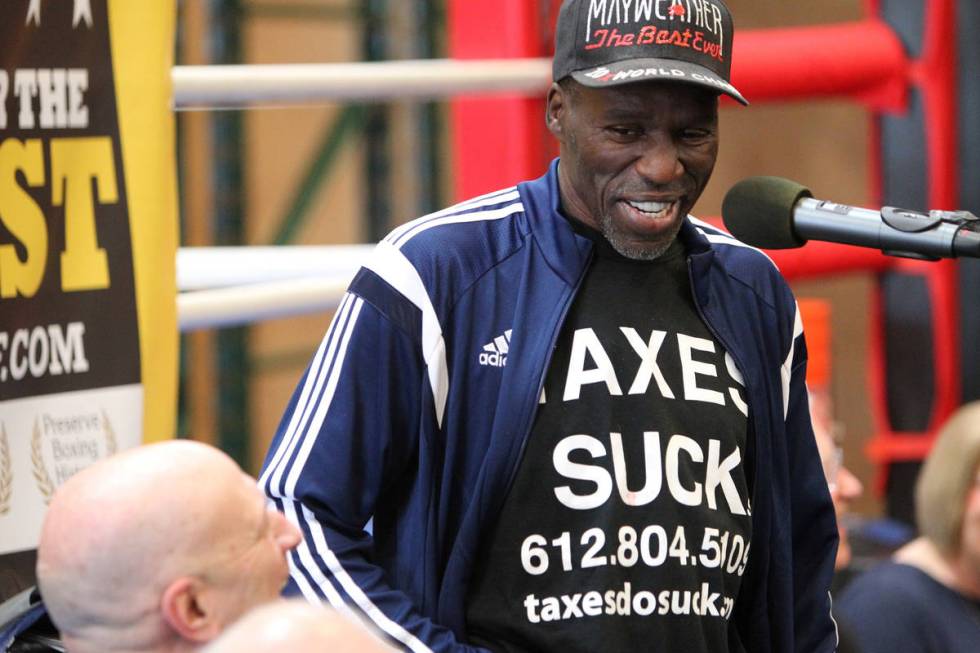Boxing fixture Roger Mayweather dies at 58

Roger Mayweather, a two-weight world champion boxer who helped his nephew, Floyd Mayweather, become one of the greatest fighters of all time, died Tuesday after a lengthy battle with diabetes. He also battled brain trauma and kidney disease.
He was 58.
“My uncle was one of the most important people in my life inside and outside of the ring,” Floyd said in a statement. “Roger was a great champion and one of the best trainers in boxing. Unfortunately, his health was failing him for several years and now he can finally rest in peace.”
Mayweather was nicknamed “The Black Mamba” and lived in Las Vegas. He was born April 24, 1961, in Grand Rapids, Michigan, and debuted as a professional boxer July 29, 1981, at the Silver Slipper. He knocked out Samuel Serrano on Jan. 19, 1983, to win the WBA super featherweight title, which he successfully defended twice before losing to Rocky Lockridge on Feb. 26, 1984.
He eventually moved up to the light welterweight division, winning the WBC title from René Arredondo via knockout on Nov. 12, 1987. He successfully defended the title four times before losing to Julio César Chávez on May 13, 1989, but continued fighting for 10 more years before retiring in 1999 with a record of 59-13, including 35 victories by knockout.
Mayweather began training his nephew, Floyd, in 1996 and took over full time in 2000, helping him become one of the best pound-for-pound fighters in the history of the sport before his health forced him to step away from Floyd’s corner.
“Roger meant the world to me, my father Floyd Sr., my uncle Jeff, our whole family, everyone in and around the Mayweather Boxing Gym and the entire boxing world,” said Floyd, who’s still mourning the loss of Josie Harris, his ex-girlfriend and the mother of his children, after she was found dead in Southern California on Wednesday.
“It is a terrible loss for all of us,” Floyd added.
Roger Mayweather’s health had waned considerably in recent years, and he had unprompted bouts of forgetfulness, paranoia, anger and hallucination. He also struggled with his vision as a result of his diabetes.
“I didn’t understand it. Sometimes words wouldn’t come to him,” his daughter, Jade, told the Review-Journal in March 2018. “When I started looking into (his health), how his body would deteriorate, I started realizing I would have to take on more of the parenting role sometimes. It was kind of hard.
“My dad knew he had brain trauma,” she added. “He told me, ‘I’m kind of messed up in my head.’ I kind of asked him if he had any regrets and he said, ‘No, I absolutely loved the sport. I have no regrets.’ ”
Contact reporter Sam Gordon at sgordon@reviewjournal.com. Follow @BySamGordon on Twitter.